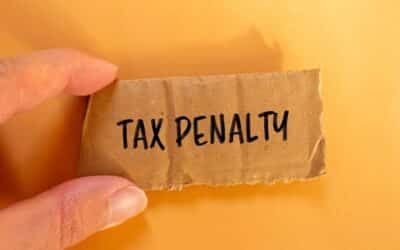Question: I am selling my one remaining real estate investment property, have no mortgage on the property and a very low tax basis in the property. Is there a way I can defer the gain on the sale and reinvest the proceeds in stocks and bonds?
Answer: The short answer to your question is no. You cannot sell real estate and avoid tax by reinvesting the sale proceeds in marketable securities. The Internal Revenue Code (the “Code”) does not extend gain deferral to such transactions.
Nevertheless, you should consider using the tax-deferred exchange rules which will permit you to accomplish your objective in an indirect fashion. The Code permits a taxpayer selling property held for productive use in a trade or business or for investment to avoid gain on the sale if the proceeds are reinvested in property of “like kind”. The like-kind requirement is relatively broad so that real property can be exchanged on a tax-deferred basis for virtually any other type of real estate property. Any gain on the sale of the relinquished property is not taxed to the extent the sale proceeds are reinvested in one or more new replacement properties. A like-kind exchange will accomplish your first objective of deferring tax on the sale of your property.
Your second objective of investing the sale proceeds in marketable securities can be accomplished by refinancing the replacement property and using the proceeds to purchase stocks, bonds or other investments of your choice. The replacement property you acquire will need to be income producing to support the mortgage loan you will be placing on the property as well as other property expenses. In some cases, you might be able to secure a non-recourse mortgage loan meaning that if you default in failing to pay the loan, the lender’s sole recourse is to foreclose on the mortgaged property; you would have no personal liability for mortgage payments. In any case, once you obtain the refinancing proceeds, they can be invested as you choose.
In enforcing the Code, the Internal Revenue Service scrutinizes transactions in an attempt to prevent taxpayers from doing indirectly what they cannot do directly. While you will not be taxed on a properly-structured like-kind exchange of property, any cash you receive and in some cases any liabilities that existed on the relinquished property, referred to as “boot”, will be taxable to you. Without delving into all the details, if the replacement property is refinanced a short time after the exchange takes place, the IRS could take the position that the refinancing proceeds were deemed to have been received at the time of the exchange and the IRS could attempt to tax the refinancing proceeds to you as boot. It is generally recommended that you wait some period of time after the exchange takes place to reduce the possibility that the IRS would make an argument of this sort.
Comparing the results will permit you to understand the benefits that can be accomplished from this transaction. If you sold your low basis property and reinvested the after-tax proceeds in marketable securities, you might have approximately 75% of the sale proceeds to reinvest. If instead, you conduct a tax-deferred exchange and obtain financing for 75% of the replacement property’s value, you would have the same amount of cash to invest. In the latter case, however, you would also have a property, hopefully, a self-sustaining one that, while encumbered by a mortgage, could increase in value and ultimately be worth more in the future than it is today. If you hold the property until your demise, your tax basis in the property will be increased to the property’s market value at such time, meaning your beneficiaries will not have to pay income tax on the gain that you deferred from the sale of your initial relinquished property.
The tax deferred exchange rules are worthy of consideration for anyone selling real estate property. Even for those who no longer wish to remain real estate property owners, the rules provide some meaningful opportunities for tax savings and economic gain.
The Tax Corner addresses various tax, estate, asset protection and other business matters. Should you have any questions regarding the subject matter, you may contact Bruce at (312) 648-2300 or send an e-mail to [email protected].


